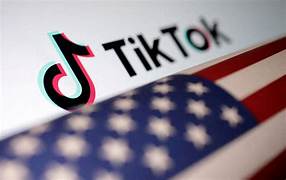The U.S. Supreme Court has agreed to hear TikTok’s challenge to a federal law that threatens to ban or force the sale of the video-sharing platform due to its ties to China. Arguments are scheduled for January 10, 2025, just days before the government’s deadline to impose the ban under the Foreign Adversary Controlled Applications Act.
This case raises critical questions about free speech rights, data security, and the power of the government to regulate foreign-owned companies operating in the United States. Here’s what you need to know about this pivotal legal battle.
The Law Behind the Ban: The Foreign Adversary Controlled Applications Act
Signed into law by President Joe Biden in April 2024, the Foreign Adversary Controlled Applications Act allows the U.S. government to ban applications deemed to pose a national security risk due to foreign influence.
The law targets platforms like TikTok, owned by ByteDance, a China-based technology firm. U.S. officials have expressed concerns that TikTok could be used to:
- Harvest User Data: Allegedly allowing access to sensitive information about U.S. citizens.
- Manipulate Public Opinion: Using its algorithm to promote content aligned with foreign interests.
TikTok has denied these allegations, maintaining that the platform operates independently of Chinese government influence.
Key Issues at Stake
The Supreme Court will address whether banning TikTok under this law violates the First Amendment, which protects free speech rights.
TikTok’s Argument
TikTok contends that the ban is a “massive and unprecedented speech restriction” that will silence millions of Americans who use the platform to:
- Discuss politics and social issues.
- Share content on arts and commerce.
- Engage in public discourse.
TikTok’s lawyers argue that the government’s concerns are speculative, with no evidence proving that user data has been misused or content manipulated.
The Government’s Argument
The U.S. government argues that the ban is a legitimate regulation of a foreign-owned company posing potential national security risks. Officials assert that the platform could:
- Allow unauthorized access to U.S. user data.
- Amplify foreign propaganda or misinformation.
Potential Implications of the Case
1. Free Speech and Digital Platforms
A Supreme Court ruling against TikTok could set a precedent for banning or regulating other social media platforms based on national security concerns, raising broader questions about free speech in the digital age.
2. Data Security and National Security
If the government prevails, it may gain expanded authority to regulate or ban foreign-owned tech companies. However, such actions could impact innovation and international trade relations.
3. Economic and Social Impact
TikTok claims 170 million U.S. monthly users, making it one of the country’s most popular platforms for communication, business, and entertainment. A ban could disrupt creators, businesses, and consumers who rely on the app.
Timing and Context
The case will be heard just days before the presidential inauguration on January 20, 2025, adding political significance to the proceedings. TikTok has argued that banning the app on January 19, 2025, would suppress political discourse leading up to this key event.
Additionally, TikTok has faced criticism from U.S. politicians for allegedly amplifying certain narratives, such as pro-Palestine content, which some have linked to rising anti-Semitism. TikTok denies these allegations, asserting that it promotes diverse viewpoints without bias.
What’s Next?
On January 10, 2025, the Supreme Court will hear arguments focused on:
- Whether the ban violates the First Amendment.
- Whether the law unfairly targets TikTok based on content shared by its users.
Both sides will present their cases, and the Court’s decision—expected by mid-2025—could have lasting implications for tech regulation, free speech rights, and U.S.-China relations.
The Supreme Court’s decision on TikTok’s challenge will be a defining moment in the intersection of free speech, national security, and digital platforms. While the government cites national security concerns, TikTok and its users argue that the law imposes unwarranted restrictions on their rights.
As this case unfolds, it will test the boundaries of government power in regulating technology and foreign influence, with consequences that may resonate far beyond TikTok itself.
Stay tuned for updates as this pivotal legal battle progresses.











